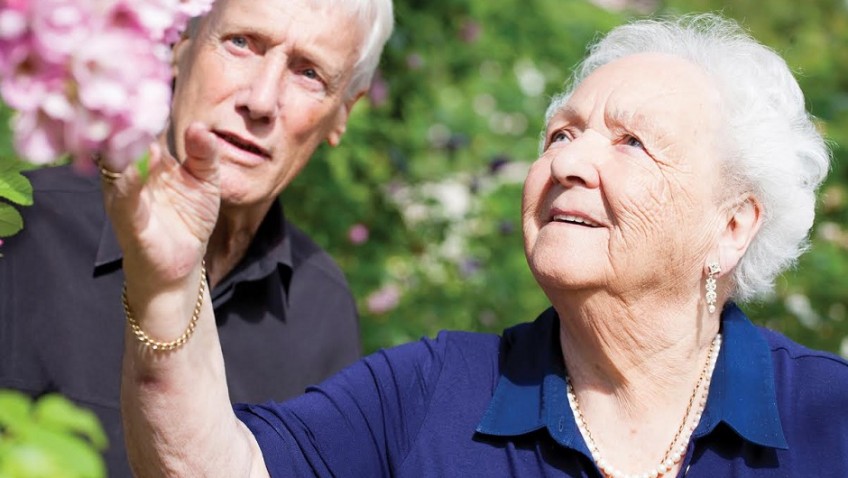- Nearly one in three families do not have the family network to properly support older people after hospital
- Many older people won’t qualify for formal care despite funding boost
- Premature discharge is a bigger problem for families than delayed discharge
- Better understanding of patients’ and families’ personal circumstances key to ensuring appropriate care packages
Almost one in three families would not be able to care for an older relative after they leave hospital without additional support, according to a new report.
The study, from older people’s charity Royal Voluntary Service, explores the experiences of families of older patients during hospital discharge and transition and reveals that while family networks come together at the point of crisis, many are unable to continue that support at home when their older relatives leave hospital.
The “Help them Home” report, assisted by The King’s Fund, is part of the Royal Voluntary Service’s Let’s End Going Home Alone campaign which calls on communities, local authorities and NHS Trusts to work in partnership to provide more volunteers in hospitals and support vulnerable older people in their homes following discharge from hospital.
The Government recently announced that councils across Britain will be allowed to increase council tax by up to 2% in order to fund adult social care, as well as a welcome top up of £1.5bn to the Better Care Fund from 2017-2019. However, those with non-critical needs do not qualify for help and there still remains insufficient provision of care for when older people leave hospital and not all families can plug the gap.
The study found that families will often rally when an older person goes into hospital and, for example during a 15 day stay, the average patient is visited on seven separate occasions by family and friends. However, when it comes to providing support after hospital almost a third (30%) of families say their family support network isn’t strong enough to cope without external help, as they have to return to their own work and family commitments.
Despite Jeremy Hunt’s recent call for families to step up and take more responsibility for older relatives, the reality in Britain is that a third of families (33%) live too far away to keep up with daily care needs, such as dressing, cooking or shopping. The average family now lives 77 minutes apart making it harder to drop in and help out. Juggling work (28%) and childcare (9%) also adds pressure, and one in five (21%) feel guilty about not being able to do more to assist.
While many families can support their older relatives, the number unable to bridge the care gap is significant. Understanding personal circumstances of families and their ability to cope is crucial not only for the health of individuals, but the efficiency and outcomes of the health and social care system.
Over a quarter (26%) of families had concerns about the care received post-discharge, and particularly when their older relative was also a carer for their spouse or partner. Furthermore, many more families have found premature discharge a problem (19%) than delayed discharge (3%), and as a result were eight times more likely to worry about their post-hospital care – a sign that some patients leave hospital too soon for families to get services and wider support in place, increasing risk of readmission.
The need for better and more consistent communication between hospital staff and family members is clear – while most families felt staff had a good understanding of their relative’s personal circumstances, close to a third (30%) had not had a conversation about this or how it affected their older relative’s care needs post discharge. Families who were asked about their relative’s personal circumstances were over twice as likely to report that their discharge was appropriate compared to those who weren’t.
David McCullough, chief executive, Royal Voluntary Service said:“The funding top up announced for our struggling care sector is very welcome. However, the obvious fact remains that many, many older people won’t qualify for formal care, but will still need support if they are to recover well after a hospital stay. Often at discharge there is an expectation that family and friends will step in, but in modern-day Britain not everyone has this supportive circle close by.
“There is a need to make a good assessment of the strength of an individual’s available network and imaginative solutions are needed where formal care is in shorter supply. This is where the voluntary sector can step in to bolster support families would give if they could. The value for the individual and the protection this can provide the NHS in terms of reducing the risk of future readmissions is highly significant.”
David Buck, Senior Fellow, Public health and health inequalities, at The King’s Fund said: “Delayed discharges are a key problem for the health and care system. But families and patients say premature discharge is a greater concern. We know that older patients who felt they left hospital too early are much more likely to be readmitted and this new report shows that families are very concerned about this too.
“Fortunately, it also shows that better communication between clinicians and families about home circumstances is associated with families feeling that discharge was appropriate. Better communication and support for families, including through the use of volunteers, is the right thing to do and may also help halt the cycle of avoidable readmission and reduce pressure on the system.”





